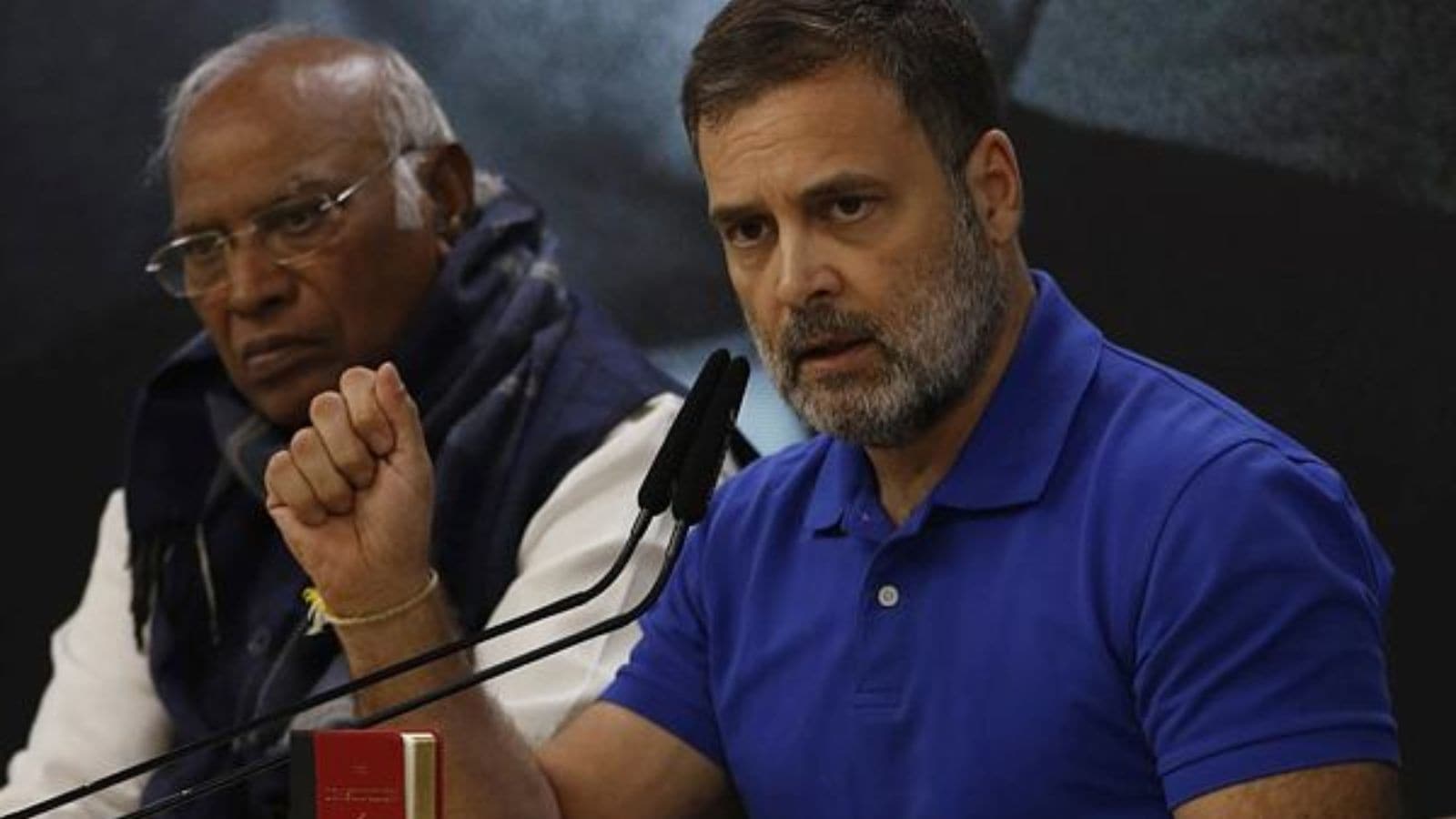 |
|
The absence of Indian National Congress (INC) president Mallikarjun Kharge and party leader Rahul Gandhi from the Global Investors Meet (GIM) 2025 in Bengaluru has sparked discussion and speculation. While the official reason cited by AICC general secretary Jairam Ramesh points to their crucial engagement in the ongoing Parliament Budget debate, alternative narratives suggest a possible protest against the prominence given to BJP ministers in the event. This incident highlights the intricate interplay between national politics and state-level economic initiatives, underscoring the complexities of managing political relations within a diverse and dynamic nation like India. The choice of the Congress leaders to prioritize their parliamentary duties, even at the cost of attending a significant state-level event organized by their own party's government, demonstrates their commitment to the legislative process, especially during a crucial budget session. This also potentially reflects their strategic calculation, indicating that the political gains from attending the event may not outweigh the potential risks and negative publicity associated with sharing the stage with representatives of the opposing party.
The GIM 2025, aiming to attract Rs 10 lakh crore in investments, underscores Karnataka's ambition to foster economic growth. The participation of numerous global companies and the establishment of country pavilions reflect the event's significance on a global scale. The substantial projected investment demonstrates the state's confidence in its economic potential and its ability to attract international interest. However, the absence of key Congress figures introduces an element of political undercurrent, potentially impacting the overall atmosphere and influencing perceptions of the event's success. The government's ability to manage the political complexities and ensure a productive summit, despite the high-profile absences, will be a key indicator of its administrative capabilities and ability to navigate the intricate landscape of national politics.
The contrast between the official explanation for the Congress leaders' absence and the circulating alternative narratives highlights the challenges of maintaining transparency and managing public perception in a politically charged environment. The choice of the Congress leaders to prioritize their parliamentary obligations could be interpreted as a strategic decision, minimizing the risk of potential political backlash or negative media coverage. However, it also raises concerns about the potential impact on the event's success and its ability to attract the promised levels of investment. The decision also speaks to the ongoing power dynamics between the central BJP government and the state Congress government in Karnataka, further underscoring the intricate web of political relations that shape economic development initiatives in India. The significance of the budget debate also underscores the importance of parliamentary processes in the overall scheme of governance and policymaking within India's multifaceted political system.
The event itself, with its aim to attract significant foreign investment, highlights the critical role of state-level initiatives in driving national economic growth. The focus on attracting investments from various countries points to Karnataka's strategic approach to building a robust and internationally connected economy. The presence of multinational corporations and the dedicated country pavilions underscore the success of the state's efforts in attracting international attention and investment opportunities. However, the political dimension introduced by the absence of prominent Congress leaders cannot be ignored. The political climate surrounding the event serves as a reminder of the inherent complexities and interdependencies of political and economic spheres. The success of the GIM 2025 will not only depend on its economic performance, but also on its ability to effectively manage and navigate the underlying political dynamics.
Future analysis of the GIM 2025 should consider not only the economic outcomes but also the political ramifications of the Congress leaders' absence. The event's success in attracting investment and fostering economic growth will serve as a testament to Karnataka's economic potential and its ability to attract foreign direct investment. However, the event's ability to successfully navigate the intricate political terrain and manage public perception will also play a critical role in its overall impact and long-term legacy. Further research could investigate the impact of political dynamics on the success of similar state-level economic initiatives in other parts of India, exploring the strategies and challenges of managing political relations within the context of economic development programs. The study could offer valuable insights for policy makers and government officials aiming to effectively balance political realities with the need to foster economic growth and attract investment.
Source: Rahul Gandhi, Mallikarjun Kharge to skip Karnataka’s Global Investors Meet 2025
